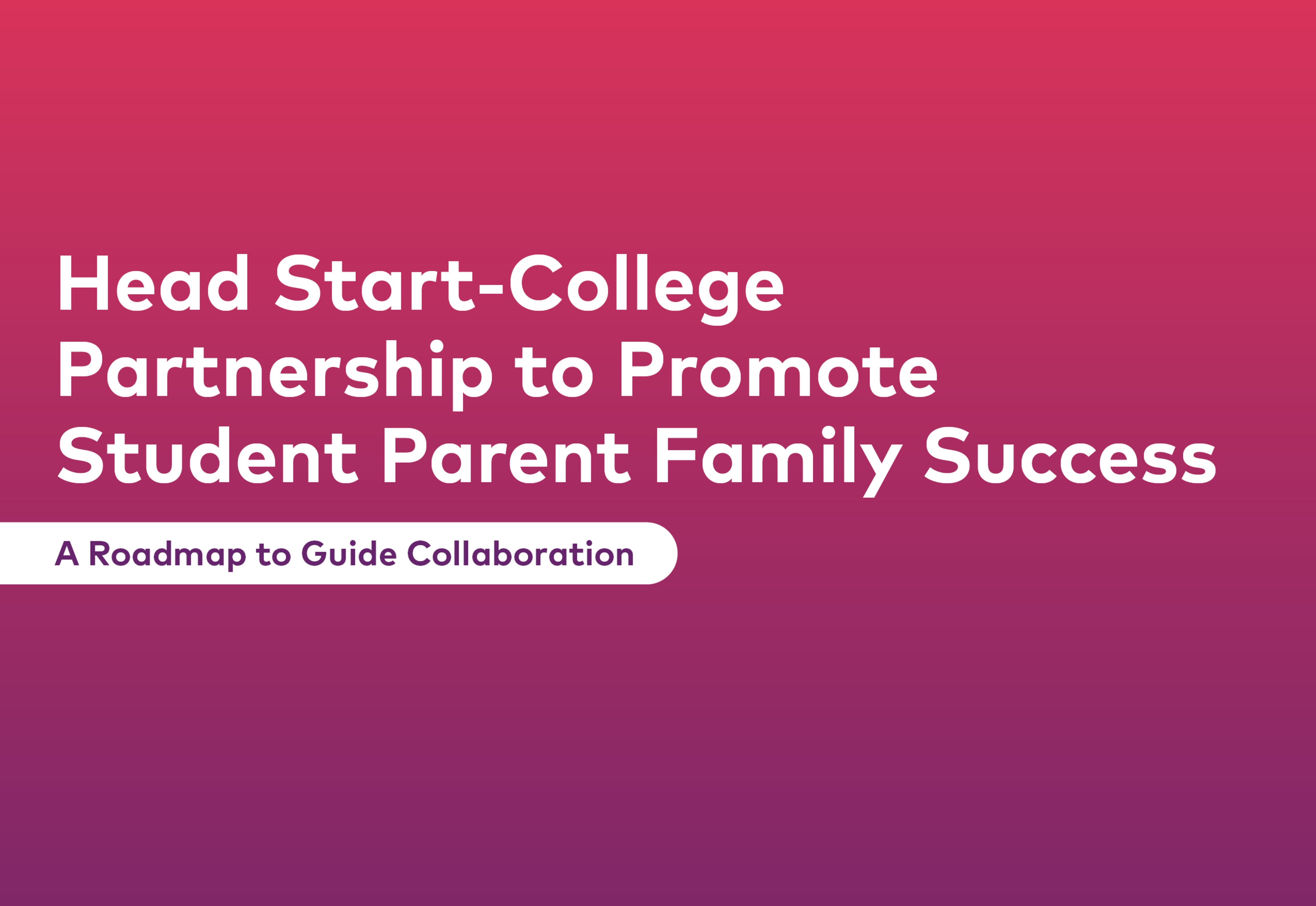Student Parent Success Initiative
Earning a postsecondary credential is more important than ever for families to achieve economic security and mobility. For the roughly four million college students who are parents of children under 18—70 percent of whom are mothers—earning a degree or certificate is a pathway to a better life for themselves and their families. These student parents, however, are often overlooked on college campuses and in the broader system of higher education, and lack access to the supports, such as affordable, high-quality child care, that they need to successfully graduate.
IWPR’s Student Parent Success Initiative conducts research and policy analysis, provides technical expertise and assistance, and communicates its research and builds partnerships to lift up the voices of students with children and increase equity in higher education for student parents and other underserved student populations.
“The Pandemic Was Not Going to Stop Me”: A Student Parent Reflects on Struggles, and Success, during COVID
This guest blog post is authored by Jessica Vera, a 2020 alumni of Misericordia University and participant of the Ruth Matthews Bourger Women with Children Program. The article was written in collaboration with IWPR’s Student Parent Success Initiative. This past year has drastically impacted my [...]
Re-Engaging Student Parents to Achieve Attainment and Equity Goals
In recent years, the goal of 60 percent of adults holding a postsecondary degree has been set as a key benchmark for the United States to build a skilled workforce and remain economically competitive. Engaging adults with some college credit but no degree is critical to reaching this goal.
Breaking Barriers, Increasing Visibility for Students with Children
This guest blog post is authored by Ashlee Hernandez, a 2021 alumni of Cal Poly’s Higher Education Counseling and Student Affairs graduate program and former student parent. The article was written in connection with IWPR’s Student Parent Success Initiative. Every semester, I pleaded with my [...]
Head Start-College Partnership to Promote Student Parent Family Success: A Roadmap to Guide Collaboration
Collaboration between colleges and Head Start programs holds promise for promoting the educational and economic well-being of college students with young children. Roughly one million undergraduate student parents with children under age six are income-eligible for Head Start, and their ability to complete their educational programs is linked to their access to affordable sources of early care and learning for their children. [...]
The Student Parent Equity Imperative: Guidance for the Biden-Harris Administration
As the Biden-Harris administration seeks to hasten the country’s recovery from the COVID-19 pandemic, reforming the U.S. higher education system to ensure equitable access and attainment for all adults is more important than ever. The pandemic has disproportionately increased the caregiving, financial, and emotional burdens on student parents and their families—most of whom are mothers, students of color, adult and working learners, students with low incomes, and first-generation students [...]
Child Care Access for Student Parents in Oregon: Challenges and Opportunities for Improving Educational and Economic Success
Access to affordable, safe, and reliable child care is essential to the ability of college students with children to pursue higher education. In Oregon, systemic challenges within the state’s child care and early learning system can make it difficult for student parents to find and pay for the care they need. This report describes findings from a study conducted by the Institute for Women’s Policy Research to describe the landscape of child care..










